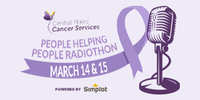There are still many stigmas attached to mental health, especially in regard to the topic of self-harm and suicide.
September 10th was World Suicide Prevention Day to bring awareness and make a commitment to prevent suicides, and create an atmosphere of hope for those who feel they have none.
According to 2016-17 Annual Stats from Manitoba Health, Seniors and Active Living, there were 545 hospitalizations due to self-inflicted injury, representing a rate of 46.7 per 100,000 population. From 2011-12 to 2015-16, there were 1,021 deaths due to suicide among Manitoba residents, representing a rate of 0.18 deaths per 1,000.
Southern Health-Santé Community Mental Health Worker Sud Jenn Kulpa works with seniors and those suffering from age-related mental illness and dealing with depression and suicidal thoughts. She provides assessments, trying to identify what's going on, and the supports needed to work through it.
Although Kulpa works with seniors, she says when talking about suicide, it affects all ages. Suicide and mental health are directly linked, and Kulpa says when they are assessing someone for their risks, they look at depression and trends in behaviour.
"Everyone feels down from time to time, and everybody has a bad day from time to time, that's perfectly normal. The concern is when it starts impacting your day to day activity. If you're not able to get out and enjoy life or do activities you want to do. If it's affecting your physical health, your sleep is impacted, those are areas of concern."
Kulpa says when thoughts of suicide are involved, it becomes a life or death situation.
"If someone is having thoughts of suicide, the first big thing is reaching out. Whether that's reaching out to a family member or a friend, I can't overstress the importance of talking to somebody. It doesn't have to be someone professional but letting somebody know what you're experiencing so you can get support and they can help you walk through it."
There are many numbers people can reach out to if they are in need, Manitoba Suicide Prevention & Support Line (24/7) 1-877-435-7170 or the Crisis Line (24/7) 1-888-322-3019.
If there's an imminent risk that someone may hurt themselves, Kulpa says the support lines will direct the person to a hospital to get medical attention. There are crisis stabilization units which professional support and allow a patient the time to cope with their thoughts of suicide.
Once the point where the immediate danger has passed, and a person is no longer thinking about suicide, the next step is finding long-term support. Kupla says options can include finding ongoing counselling to develop improved coping skills, psychiatric services that can assess if medication is an option, building healthier habits, and creating a support network of friends and family.
Although the conversation of mental health has begun to improve, Kupla says society still has a ways to go in allowing people to talk about these sensitive issues.
"For somebody who is having thoughts of suicide, it can be very isolating because they're embarrassed, it might be shameful. So they don't talk about it, and then nobody knows they can help them."
Suicide is a horrifying place to be to have those kinds of thoughts and Kulpa says no one should have to go through that alone.











